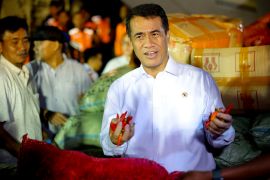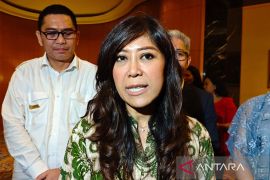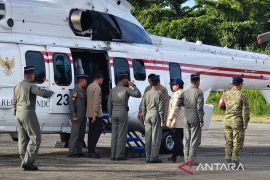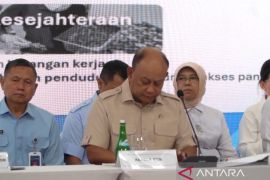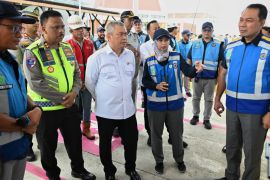A coalition of Islamic parties will allow enough votes to be garnered in the next parliamentary elections to meet the qualifications to nominate a presidential candidate.Jakarta (ANTARA News) - The Secretary General of the United Development Party (PPP), Romahurmuzy, has said Islamic parties are most likely to form a coalition ahead of the 2014 presidential elections.
"If a coalition of Islamic parties is not possible, there must be a special reason for that because even for a tactical coalition (of Islamic parties) for nominating a presidential candidate or maintaining the stability of the government in future based on their parliamentary seats today it is already more than enough," he said here on Thursday.
A coalition of Islamic parties will allow enough votes to be garnered in the next parliamentary elections to meet the qualifications to nominate a presidential candidate, he added.
"Even if only the PPP, PAN (National Mandate Party) and PKB (Nations Awakening Party) join forces, their seats will be enough. The total seats of the three parties add up to 117. If combined with those of the PKS (Prosperous Justice Party), that number jumps to 169, well above the threshold of 112 seats required to nominate a presidential candidate," he said.
Hidayat Nur Wahid, a member of the PKS highest law-making body, said on Tuesday that Islam-based political parties should come together during legislative elections to increase voter participation in the elections.
"In my view, a coalition is necessary so that voters will not be apathetic about the elections," he noted.
The coalition is part of efforts to restore the publics confidence in political parties and the democratic system, and could become a means to fight for the interest of voters, he said.
"That will prevent the public from resorting to terrorist acts," Hidayat added.
But former Constitutional Court chief justice Mahfud MD has expressed pessimism over the plan by a number of Islamic parties to form a coalition ahead of parliamentary elections in April next year.
"To me, the idea is good, but it might not work as expected," he said after a public discussion at State Islamic Syarif Hidayatullah University on Wednesday.
Mahfud said the idea of a coalition had already been in existence for a long time, but was not realized so far because it was intended for only fighting opposing groups in the elections.
Islamic parties have, so far, never won significant votes in the countrys general elections. That is why the idea of a coalition has emerged.
Only parties that win 25 percent of the national votes in the next parliamentary elections are allowed to nominate their presidential candidates. Those who fail to win the required percentage of votes have to form a coalition if they wish to nominate their own candidate. (*)
Editor: Heru Purwanto
Copyright © ANTARA 2013
